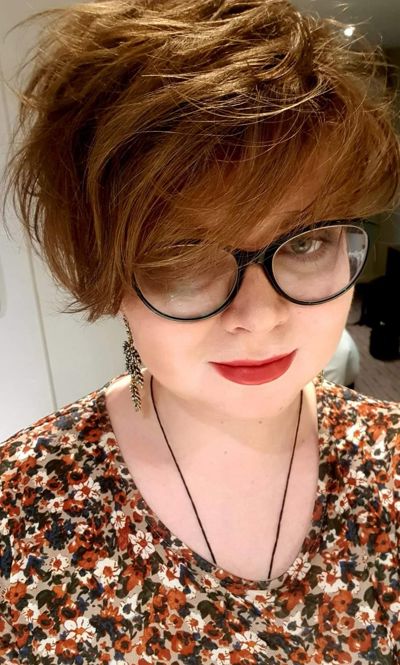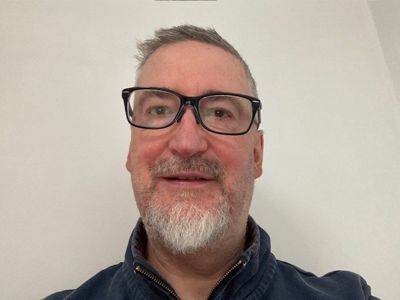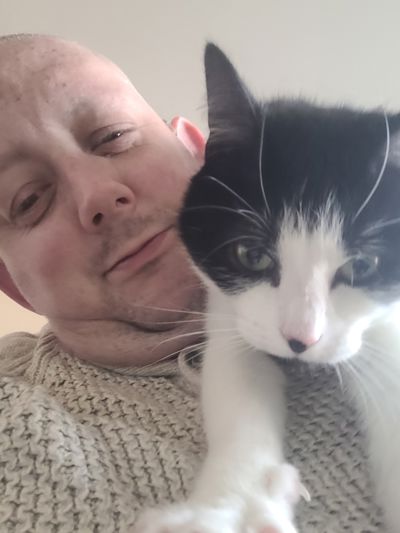“One thing the C-PTSD narrative lacks is hope” – Ida’s story
27/06/2024
For PTSD (post-traumatic stress disorder) Awareness Day, Ida powerfully captures her experience of complex post-traumatic stress disorder (C-PTSD) and how she manages it.
There are only a few occasions where I need to say the actual word nowadays. I try to avoid it because of the look. There’s nothing easy about anxiety or depression, but with them I don’t get that look. Example:
Someone asks: any pre-existing conditions?
I answer: complex post-traumatic stress disorder (C-PTSD).
Then: the look. Sometimes obvious, sometimes less so. An unnatural pause where natural curiosity and adapted social convention momentarily collide. The question I know they want to ask but won't: "What happened to you?"
The C-PTSD diagnosis was a relief. I knew I wasn't "just" depressed or anxious. There was something else, always something else and it finally had a name.
Although I'm grateful for the diagnosis, I hate the fact it involuntarily suggests something about me. Something has happened and whatever it is, it hasn't been good. Whilst a lot of C-PTSD content mostly focuses on childhood trauma, a narrative of unsafe childhood doesn't tell my story.
-
Not much is needed for things to go haywire. A scent, a sound, a change in tone.
C-PTSD feels like I'm a seismometer needle measuring an earthquake. A machine of constant motion drawing out patterns, pointing out slightest alteration. The data feed is never-ending, the threshold to declare exceptional circumstances is low. Even when things are calm, the needle keeps going. It never stops.
The needle is too tightly wound. Slightest change in the norm causes a jump, draws multiple peaks, valleys, dead drops in between. Not much is needed for things to go haywire. A scent, a sound, a change in tone.
I try to reason with the needle. There's nothing to be afraid of. But my heart keeps bashing against my ribcage. My thoughts display all scenarios imaginable and unimaginable, lived and non-existent, so nothing surprises me. A constant safety check you didn't consent to is exhausting but has its own logic: If I only remain one step ahead, nothing bad will ever happen.
-
It's been a hard road, but I'd travel it a thousand times over to be where I am now.
The sad thing is, life doesn't work like that. When I got out of the traumatic situation, I decided not to deal with any of it. I'm out now, what's the point of going on about it? I'm moving on with my life.
And for a while it worked. The world will give you tasks to fill every waking moment with if you seek them. Extra tasks, overtime hours, everything the external reality rewards you with - praise and a momentary relief.
Looking back now, something had to give in eventually. There's only so long your body can take being in a constant state of hypervigilance. In the end I lost all the success I had nearly extinguished myself pursuing.
If anyone reading is worried about seeking professional help, I'd say: you might as well try. Addressing trauma is terrifying but the possibility of things improving, however distant, is already better than swimming against the current alone.
One thing the C-PTSD narrative lacks is hope. The struggle deserves to be heard, but what's beyond gets less airtime. During my recovery, I didn't know of anyone who made it to the other side. All I could do was hope: take the medications, attend the counselling, listen to the advice and reassurance when I didn't have the strength to believe myself.
What happened to me is an understandable physical reaction to events a human brain can struggle to process. The needle may be a hindrance, but its only intention is to keep me safe. I can understand why it’s there, be mindful of it and grateful for its diligence.
-
Recovery teaches you the weight of small steps, moments of quiet happiness.
After years of support, my life is unrecognisable. Flashbacks are rare, physical symptoms have lessened. Anxiety remains my constant companion but regular exercise helps to manage it. I'm still hypervigilant, but not constantly. Not overwhelmingly.
Now, you couldn't tell me apart from any other working age adult. But I no longer measure success the same: recovery teaches you the weight of small steps, moments of quiet happiness. It's been a hard road, but I'd travel it a thousand times over to be where I am now.
The word "énouement" describes the bittersweetness of having arrived in the future, unable to tell your past self how things turned out.
If I could, I'd sit beside my past self: the girl on the bathroom floor nauseous from medication side effects, the girl in bed trembling after a nightmare, the girl silently paralysed by fear amidst a crowd.
"Rise", I'd tell her. "Rise."



